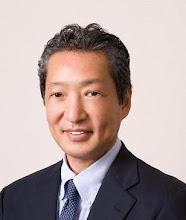月刊誌スタッフ・アドバイザーのウェブサイト海外ビジネスコラム(Bilingual)に以下の記事を執筆しました。
日本語 http://www.staffad.com/business/shinbori04.html
English http://www.staffad.com/business/shinbori04_02.html
「グローバル化するお寿司やさんと社内公用語」
■ 英語でおもてなし 元フィリピン人女将さん
早稲田にあるお寿司やさんに時々出かける。 ここはとてもインターナショナルなお寿司やさん。 いつも、いろんな国から来たお客さんで賑わっている。人気の秘密は、ネタが新鮮で美味しいお寿司を提供してくれることはもちろん、元フィリピン国籍の女将さんによることが大きい。
女将さんは持ち前の明るいキャラクターと人懐こさで、誰もを友達にしてしまう。 このお店に来ると、初対面のお客同士が、食事を終える頃には 旧来の友達のようになってしまうが不思議だ。
女将さんは、フィリピン出身。 母国語タガログ語はもちろん、日本語・スペイン語・英語がとても流暢だ。 最近では、Facebook を通じて知り合った海外のお客さんがわざわざ立ち寄るという。
■ 築地のお兄さんは英語で寿司解説
築地の場外にあるお寿司やさん ここも海外からのお客さんが多い。 先日もカウンターに座ったら、隣は小学生の男の子と両親の3人連れ。ディズニーランド観光と築地でお寿司を食べるのを楽しみに、ドイツから東京に遊びに来たという。 インターネットで、ここのお寿司やさんが紹介されていたらしい。こんなお寿司やさんに(こんなとは失礼!)わざわざ海外からと驚いていると、すぐにその理由がわかった。
カウンターの中でお寿司を握っている4人のうち、ひとりはまだ20代後半の若いお兄さん。 このお兄さんが、お寿司のネタについて、英語で解説をしてくれるのだ。 海外ではあまり口にしない「うなぎ」について、日本では蒲焼にして食べるということまで解説する。私はそれを聞いて、なるほど そう説明するのかととても参考になった。
■ 顧客のグローバル化
最近、企業のグローバル化という言葉を見聞きする事が多い。 グローバル化というと大企業が海外に展開することを想像してしまう。 しかし、早稲田や築地のお寿司やさんは日本にいながらにしてグローバル活動をしている。 地理的マーケットは日本国内だが、海外のお客さんを日本に呼び込んでビジネスをしている。
クローバル化で重要なのは言語だ。お寿司やさんに英語が喋れる女将さんや店員さんがいるとなると、海外からのお客さんは安心してお店に立ち寄れる。
インターナショナルな感覚を持ち、お寿司を握りながら、カウンター越しに海外のお客さんとイキに英語でコミュニケーションができるお寿司やさんは、自然とビジネスが広がる。
■ 社員がビックリ 「我社の公用語は英語!」
企業のグローバル化に伴い、英語を社内公用語にしようという企業が何社かでてきた。 ユニクロや楽天がそうだ。 これからは海外マーケットの比重が多くなるので、社内公用語を英語にしようと、社長さん自らが宣言した。
社員の目標はTOEIC700点、課長や部長の管理職になるためには必須だという。「日本の企業が、日本にいて、日本人同士でなぜ英語で会話しなくてはならないのか? ばかげているのでは・・?」といった意見も目にした。
推測するに、社長さん自ら 「社内公用語を英語にする」と宣言したのは、社員に対する一種のショック療法であろう。 日本では少子化が進み、人口は減少の一途、GDPが年々下がっていくことは明らかである。日本市場が縮小する中、企業が 社員とその家族を食べさせていくには、海外市場に目を向けざるを得ない。
「社員の皆さん、我社はこれから海外市場を目指しますよ。 そのためには、英語でコミュニケーションが必要です。 よってもって、皆さんは英語をしっかり勉強してくださいね・・」 と長たらしく説明するより、「我社の公用語は英語!!」 といった方が、ダイレクトでとてもわかりやすい。社員はそれこそ尻に火がついた感じで、英語を勉強しはじめるだろう。
我家では時々海外からのお客さまを迎え、家族と共にテーブルを囲んでもらうことがある。その時は、英語が超苦手な家人も会話に参加することになる。
グローバル化していない家人の英語を聞くうちに素晴らしい計画を思いついた。家庭内公用語を英語にすれば良いのだ! そうすれば家人の小言も減り、ああだこうだというお節介もなくなる。素晴らしいアイデアである。
しかし、有り得ないことではあるが、家人が突然変異して英語の達人になった場合を想像すると恐ろしくて実行できない・・・。
The globalizing face of sushi restaurants and a company's official language
■Hospitality in English by a proprietress from the Philippines
I sometimes eat out at a sushi restaurant in Waseda. This sushi restaurant has a very international atmosphere and is always full of visitors who come from various countries. The secret to its popularity is, of course, the fresh and delicious sushi they offer. But another secret is the proprietress of the restaurant, who is a former citizen of the Philippines.
The proprietress makes friends with everyone with her naturally cheerful character and frankness. It is strange to see visitors become friends with one another by the time they finish their meals, even though it is their first meeting at the sushi restaurant. The proprietress came from the Philippines. Not to mention her native language of Tagalog, she also speaks Japanese, Spanish and English very fluently. They say that recently overseas visitors who have gotten to know her through Facebook have gone out of their way to see her.
■Young sushi chef in Tsukiji explains about sushi in English
There is another sushi restaurant in Tsukiji. Many foreign visitors also visit this sushi restaurant.I went there the other day and sat at the counter.Sitting next to me was a family of three; a primary school boy and his parents. They told me that they came to Tokyo from Germany to visit Disneyland and enjoy sushi in Tsukiji.It seems that this Sushi restaurant had been introduced on the Internet.
I was surprised that they came all the way from overseas to eat sushi at such a restaurant (although it must be rude to say so!)Then I immediately found the reason for their coming.Among the four chefs preparing the sushi by hand at the sushi bar, one was a young chef still in his late twenties. This young chef was explaining various aspects of sushi in English.
This is mackerel, this is medium fatty tuna, this is salmon roe and this is fresh water eel etc.About ‘eel’, which is not a popular dish abroad, he commented that the Japanese split and broil the eel before eating it. His comment was also very useful for me, giving me a good reference as to how to explain such things in English.
■The globalization of the customer
Recently I often see and hear words such as the ‘globalization of the company’. When I hear the word globalization, I imagine a big company's expansion into overseas markets.However, the sushi restaurants in Waseda and Tsukiji are acting globally even though they are located in Japan.Their geographical market is Japan, but the nature of their business is attracting customers from overseas to Japan.
One important factor of globalization is language.If there is a proprietress or a head chef who can speak fluent English in a sushi restaurant, visitors from overseas can feel at ease when entering the sushi restaurant.
If a sushi restaurant were to have a sushi chef with an international sense and the ability to communicate in English to overseas guests over the counter while preparing sushi, such a sushi restaurant will find its business expand naturally.
■Employees get a shock! "Our company's official language is English!"
As a part of corporate globalization, some Japanese companies have decided to make English their official language. Uniqlo and Rakuten are two such companies. One CEO declaring that the company’s official language should be English, because the company’s business volume in overseas markets is increasing. The goal for employees looking to attain a management position is a TOEIC score of 700.
However, some people have criticized "Why do Japanese employees of a Japanese company in Japan have to speak in English amongst themselves? It is ridiculous!!"
It is clear that Japan’s birthrate, population and its GDP continue to decrease year after year.Japan’s domestic market is also shrinking.
I guess it was a form of shock treatment for the employees that the CEO came out and bluntly declared English as the company's official language.
"To our employees, our company will aim to expand its business in overseas markets from now on. To achieve this it will be necessary to communicate in English. So please study English very hard..." Rather than this long message, "Our company’s official language is English!!" is more direct and self-explanatory. With this more direct message, employees will definitely begin to study English in earnest.
I sometimes invite foreign guests to my home to have a meal with my family. My wife, who speaks poor English, tries to join in the conversation. Upon hearing my wife’s English, I hit on a splendid plan. We should make English the official language in our home! Then the scolding I get from my wife will decrease and meddling will be avoided. What a wonderful idea!
However... just thinking about what would happen if she were to mutate and become an English master keeps me from carrying out this plan.
2010年10月16日土曜日
登録:
投稿 (Atom)

